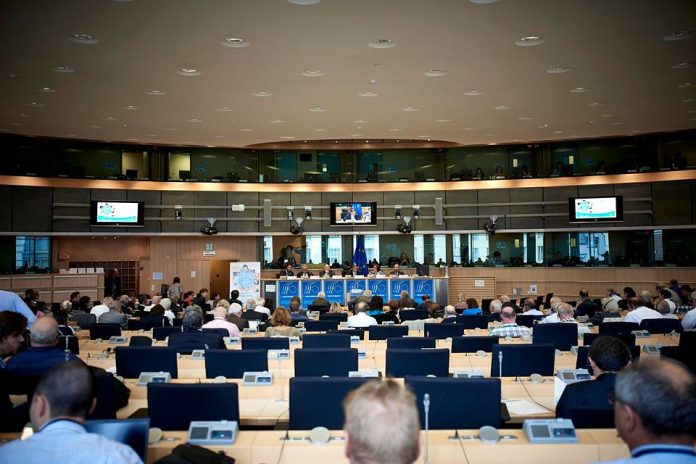Having learnt from the shortcomings of the previous EU Roma framework over the past decade, the European Commission is determined to achieve the headline targets of the new Roma strategic framework, closing the gap of discrimination and socio-economic exclusion by at least half by 2030. However, the role of the Member States in delivering tangible results is pivotal. Without effective national strategies and pragmatic measures, the new framework risks failing in the same manner as its predecessor.
Participants in an online hearing on The new EU Roma framework: views and expectations for the future of the Roma communities, pointed out that the reason the previous strategy had failed to achieve good results was not its content but was mainly the political situation in and lack of support from some Member States. Organised by the EESC’s thematic study group on Roma inclusion, the hearing aimed to discuss the new Roma framework and to gather the views and expectations of Roma organisations on its plans and proposals. According to recent data from the Fundamental Rights Agency (FRA), the situation remains unchanged for Roma minorities and travellers and has even worsened in some countries with, for example, 62% of children living in severe deprivation. The question, therefore, is how the new strategy can overcome the difficulties of the past. In this regard, Marc Kiwitt from the European Commission’s Directorate-General for Justice, said “First we have to recognise that political pressure, tackling discrimination and exclusion require long-term commitment. It is also encouraging to see that Member States have demonstrated their commitment to strengthening Roma equality by unanimously adopting the Council Recommendation of 12 March 2021”. The Recommendation commits the Member States to put forward effective Roma integration measures. The new Roma framework focuses on a three-pillar approach: equality, inclusion and participation, complementing the socio-economic integration of marginalised Roma in the previous framework and reforming it considerably. Regarding legal instruments that could strengthen the new EU Roma framework, Mr Kiwitt referred to a number of directives already adopted by the Commission, such as the Race Equality Directive and the new EU anti-racism Action plan. Ursula Till-Tentschert from the FRA, raised the importance of effective monitoring frameworks in every Member State to ensure the equality, inclusion and participation of the Roma. “Effective policies require concrete targets and effective monitoring measures the progress of these targets” said Ms Till-Tentschert. She also stated that countries are strongly encouraged to develop their own national targets with indicators, in consultation with CSOs, and to collect their own data. These practices will help Member States adapt their national plans accordingly.
The new Roma framework contains much of merit but the problem of implementation remains the same
The representatives of Roma communities and CSOs welcomed the new EU Roma framework and Council Recommendation. “It is important that this strategy shift to a more balanced approach between social inclusion, human rights and empowerment objectives, but it still remains a soft mechanism for the Member States” underlined Isabela Mihalache, from the ERGO Network. Rafael Saavedra Rodriguez from the Fundación Secretariado Gitano (FSG) recognised the key role of participation as one of the main rights for the Roma minority that should be promoted in the coming years. “We have always supported this idea. The participation of the Roma people in building their future is an indispensable element in this process” he said. Mr Saavedra Rodriguez strongly emphasised that the national strategies of each Member State should focus on two specific objectives: “Firstly, eliminate poverty and social exclusion and secondly, guarantee the essence of civil and social rights as a way to achieve full equality under the same conditions as the general population”. Ms Mihalache praised the new framework for including a number of synergies and complementary EU policies, such as the Anti-Racism Action Plan, the Green Deal and the European Pillar of Social Rights, but argued that when it comes to the common minimum commitments of Member States, they are still low and rather general in nature. In fact, countries must go beyond the minimum targets and objectives set in the EU strategic framework. To this end, the ERGO Network, in consultation with CSOs, has published recommendations on the design of the new Roma strategies for September 2021. Key recommendations for all governments include prioritising the fight against anti-gypsyism and discrimination, eradicating segregation in education and housing and combating anti-Roma prejudice and stereotypes. Bernard Rorke, on behalf of the European Roma Rights Centre (ERRC), underscored that through corruption, democratic backsliding and routine segregation, Member States with the largest Romani populations have engaged in anti-Romani racism from the highest public offices. “Unless justice prevails without prejudice for Romani citizens in the EU, this framework will fail in exactly the same manner as its predecessor” warned Mr Rorke and he added that access to justice is indispensable to inclusive development. The decade-long commitment of the Commission to promote Roma inclusion is fully recognised by Roma communities and organisations, but the primary obligation to combat anti-Roma racism lies, as it always has, with the Member States Along the same lines, Florin Botonogu, from the Bucharest-based Policy Centre for Roma and Minorities, stressed “We have the documents, we have the targets to look at, but still we complain that we barely see any results in this field. Why does this happen?” Mr Botonogu emphatically explained that strategies have to look at the political and societal context, as each country has its own political environment. He stressed that solutions need to be realistic, saying that we cannot turn Roma into entrepreneurs when they have no education due to their poverty. The social economy is the solution to the socio-economic integration of Roma. In his concluding remarks, the President of the EESC Thematic Study Group on the Inclusion of the Roma, Alfredas Jonuška encouraged CSOs and NGOs to speak louder as, while progress has been made, there is still much more to achieve.

